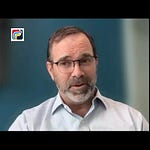Brandon Pichanick once tracked billions in U.S. government funding to fight the 2014 Ebola epidemic in West Africa. Today, he’s the Chief Operating Officer of a $30 million construction supply company in Dallas, Texas.
His journey from Washington, D.C., to the private sector wasn’t easy—but it offers a practical blueprint for public sector professionals looking to make a similar leap.
From Capitol Hill to the Job Site
Brandon began his career in development at USAID, working on financial compliance, budgeting, and program oversight from 2013 to 2019. He helped build systems—on the fly—for one of the most high-profile crises in recent history: the $2.5 billion U.S. response to the Ebola outbreak in West Africa.
“There was a lot of red tape being built in real time, to answer tough questions from the Office of the Inspector General and Congress—on how that money was spent, how lives were saved, and how we’d prevent future emergencies.”
After six years of high-stakes public service, he decided it was time for a new challenge—and a new zip code. He moved to Dallas for family reasons, ready to take on the private sector.
He Did Not Just Click Easy Apply
You might think that someone with Brandon’s experience could easily walk into a private sector role. Not so. He tried responding to job opportunites, but failed too often.
“My rejection rate was probably 70% or 80%, I clawed, scraped, and DM’d my way into interviews.”
What changed? Language. The language of USAID is different from the language of business. Brandon had to reframe his experience—transforming compliance audits into risk mitigation, and program budgeting into financial planning.
“If you looked at my CV in 2019 and then again in 2025, the same experience would be categorized completely differently.”
That’s a crucial lesson for career changers: your resume is not your biography. It’s a translation tool. If you want a private sector job, you need to speak the private sector’s language.
Translate Your Function, Not Your Job Title
Here’s how Brandon translated his roles from the public sector into their private sector version.
USAID Role → Private Sector Equivalent
Budget Analyst for Ebola Response → Financial Planning & Analysis Manager
Program Auditor → Risk Manager or Compliance Officer
Field Monitor → Project Manager or Site Auditor
Translate your USAID job titles right now!
Finding the Private Sector Parallel
Brandon didn’t pivot into international consulting or philanthropy. He joined a construction supply company. On paper, it might seem like a radical shift—but the skills transferred seamlessly.
“As COO, I look at profit-and-loss statements and find cost efficiencies. That’s exactly what we did at USAID—just with Congressional funds instead of company revenue.”
His background in fiduciary responsibility, project planning, and compliance gave him a clear edge. Just swap the country portfolios for product lines and field missions for job sites.
“At USAID, we’d monitor program implementation in Sudan, Tanzania, Colombia. At my company, we send PMs to construction sites to do the same thing—monitor progress, assess risks, and ensure safety. The only difference is the sector.”
Where to Look for Opportunity
Brandon points out several private sector roles that are a natural fit for public sector professionals:
Finance & Administration
Budgeting
Financial Planning and Analysis (FP&A)
Compliance
Internal Audit
Legal & Regulatory
Contracts and Grants Managers
Paralegals
Legal Researchers
Project Management
New initiative leads
Market research project managers
Site auditors and safety officers
Mind the Learning Curve
Yes, there’s a learning curve. You’ll need to get up to speed on your new company’s industry, software, and internal systems. But don’t let that stop you.
“My work ethic, attention to detail, and ability to stay organized—that came from the level of scrutiny I was under in the public sector. That transfers.”
Hiring managers will value your discipline, structure, and results-oriented mindset—as long as you frame it in their terms.
From Public Good to Private Growth
Brandon’s path from federal finance to COO didn’t happen overnight—but it shows that a career in public service is an asset, not an obstacle, to private sector success.
The key is knowing how to repackage your experience for a new audience. Whether you’re a program officer, auditor, or compliance expert, there’s a company out there that needs your skills—they just don’t know it yet.
Brandon’s Advice to USAID Alumni
If you’re thinking about a move from the development or federal sector to private industry, here’s Brandon’s blueprint:












